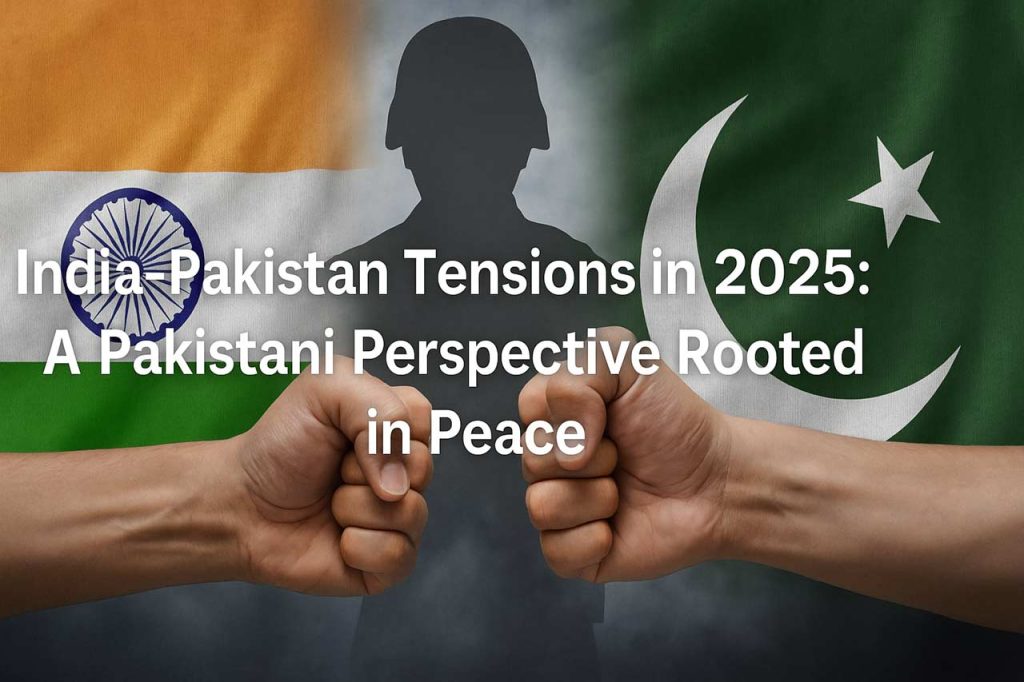The relationship between India and Pakistan has once again made global headlines following a recent incident in Indian-administered Kashmir. As tensions rise, it’s important for us—especially as Pakistanis—to reflect not just on the headlines, but on the broader historical context, our peaceful intentions, and the need to protect South Asia’s future from the threat of nuclear conflict.
A History Written in Conflict—but Not Without Hope
India and Pakistan’s complex relationship began at the time of Partition in 1947. While independence brought freedom, it also led to one of the largest migrations in human history, accompanied by violence and trauma.
Since then, the Kashmir dispute has remained at the heart of our conflict, leading to three wars and numerous border skirmishes. However, let’s not forget the Simla Agreement of 1972, where both countries committed to peaceful bilateral dialogue—a principle Pakistan has consistently supported over the years.
The Latest Crisis: What Sparked the Tension?
In April 2025, a militant attack in Indian-administered Kashmir killed 26 people. India quickly pointed fingers toward Pakistan—a claim that Pakistan has firmly denied.
What followed was alarming: India announced its withdrawal from the Indus Waters Treaty, a historic agreement from 1960 that governs the sharing of rivers. For a country like Pakistan, where agriculture and drinking water rely heavily on these rivers, this move is more than political—it’s existential.
From Islamabad’s point of view, such actions are not only unilateral but risk pushing the region toward irreversible conflict.
Indus Waters Treaty: Lifeline in Danger
Many outside South Asia don’t realize the importance of the Indus Waters Treaty. Brokered by the World Bank, it has survived wars and crises because both countries understood the danger of using water as a weapon.
India’s current stance disrupts this fragile balance. For us in Pakistan, where millions of livelihoods depend on the Indus Basin, any attempt to block water is not just against international law—it’s against humanity.
Pakistan’s Stand: Peace Over Provocation
As Pakistanis, we know the cost of war—many of our families have lived through it. That’s why our nation continues to call for diplomacy, de-escalation, and dialogue.
Unlike the rhetoric that sometimes dominates Indian media, Pakistan’s official narrative has remained calm and focused on peace. We’ve offered cooperation in investigations and asked global bodies to step in before the situation worsens.
This isn’t just diplomacy—it’s wisdom. Because when you’re dealing with two nuclear-armed nations, a miscalculation could mean disaster for over 1.5 billion people.
Yet let us be clear: Pakistan’s desire for peace must not be mistaken for weakness. If India chooses the path of aggression, then every Pakistani—from soldier to civilian—will rise to defend our homeland. Our armed forces are always prepared, but so is the spirit of unity among the people. We are a nation that will stand shoulder to shoulder and fight till our last breath if our sovereignty is threatened. Peace is our preference, but honor and defense of Pakistan are non-negotiable.
Nuclear Shadow: Why War Is Not an Option
Both India and Pakistan are nuclear states. That fact alone should force every leader, journalist, and citizen to think twice before calling for escalation.
The doctrine of Mutual Assured Destruction (MAD) means there are no winners in a nuclear war—only ashes. The responsible path is peace, not provocation.
Shared Future: We Have More in Common Than We Think
Despite our political differences, Pakistanis and Indians share culture, languages, food, and even emotions. Our families are divided by borders, but united in bloodlines.
Instead of weaponizing these differences, let’s harness our shared identity for dialogue and diplomacy. Trade, climate change, poverty, education—these are the real issues we should be fighting together, not against each other.
Final Thoughts: Let Peace Lead the Way
We strongly believe that the future of both India and Pakistan lies in peaceful dialogue and cooperation. The lessons of history have shown us that conflict only brings destruction, while peace fosters progress. We urge both nations to prioritize diplomacy over aggression, for the well-being of their people and the stability of the region.
We stand firm in our belief that peace is not just an option—it is the only way forward. Should aggression arise, the people of Pakistan, alongside their armed forces, will defend their sovereignty with unwavering resolve. However, our collective hope is that diplomacy and peaceful negotiations will pave the way for a brighter, more secure future for both nations.


